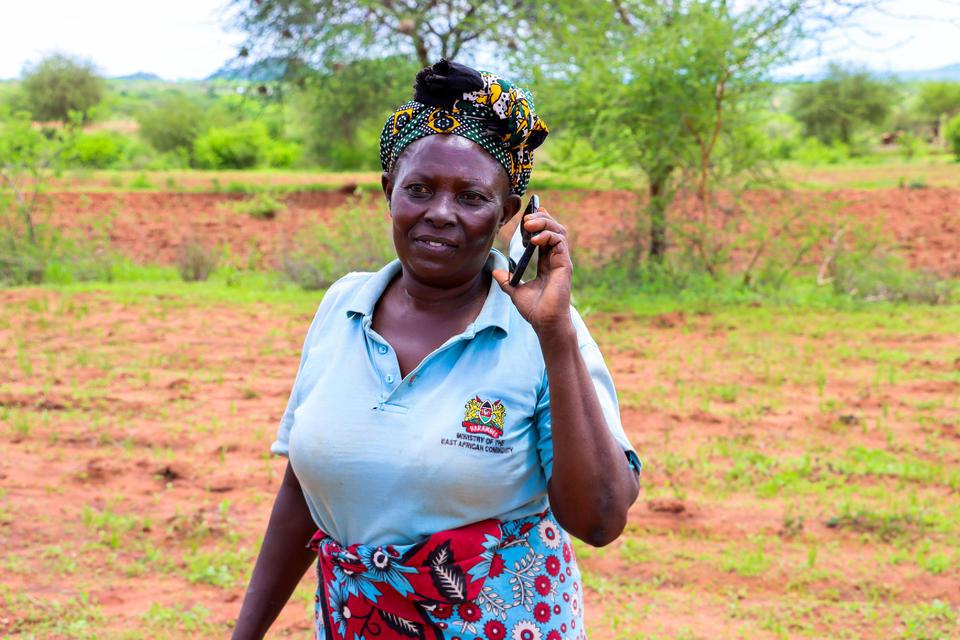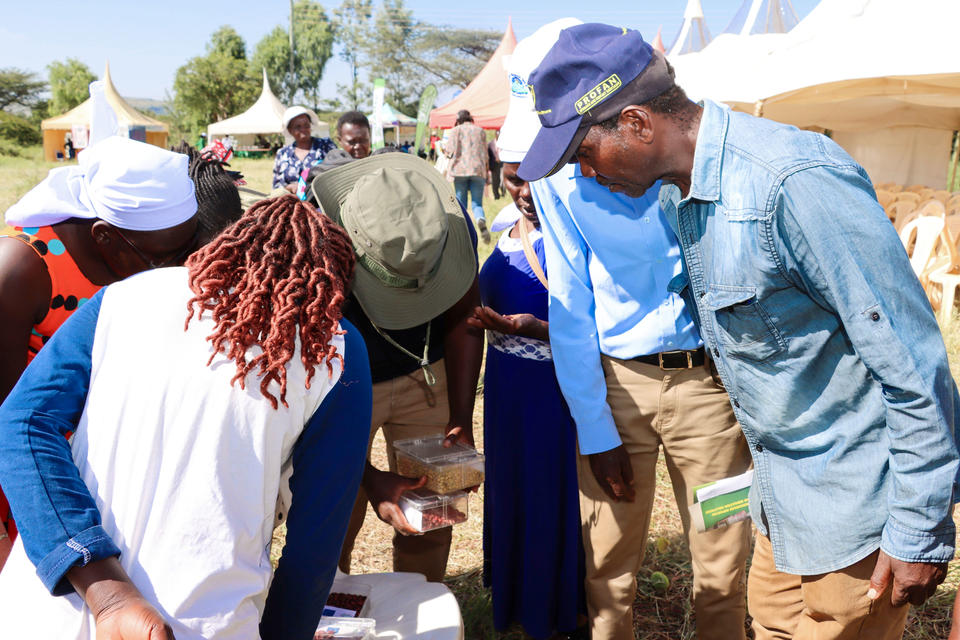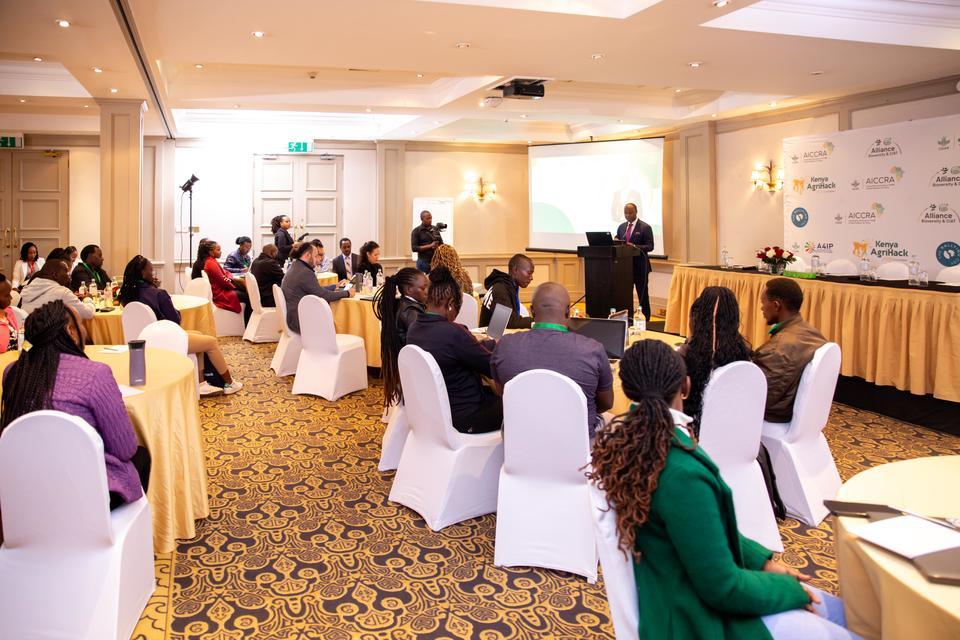From the Field Building Resilience Through Locally Led Climate Action: The Significance of Kenya’s Participatory Scenario Planning
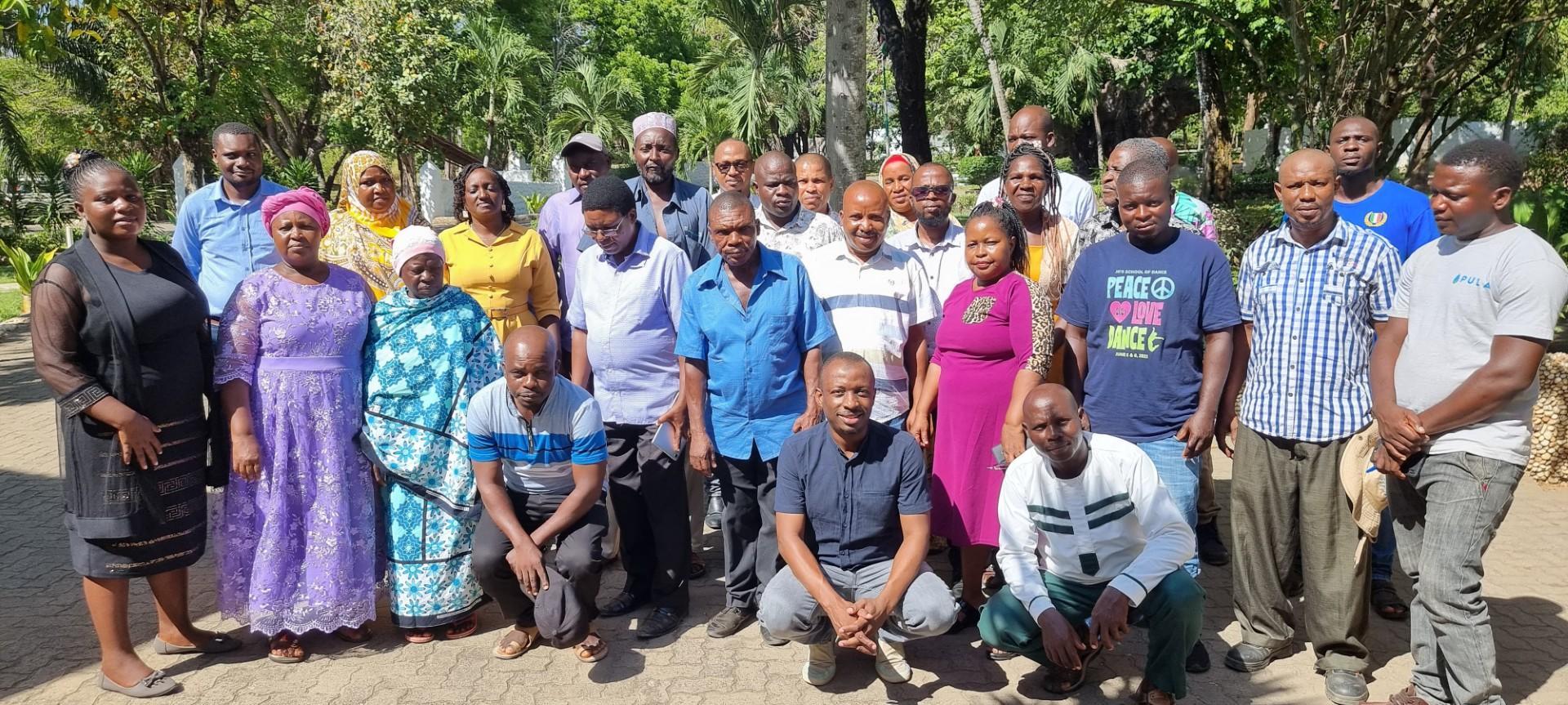
Participatory Scenario Planning (PSP) workshops - facilitated by the Alliance of Bioversity International and CIAT, in collaboration with the International Livestock Research Institute - were conducted in nine counties in Kenya during the release of the national forecast for March, April, and May (MAM) rains by the Kenya Meteorological Department. The objective was to address climate challenges by integrating meteorological insights with local knowledge, convening stakeholders for collaborative discussions, and developing tailored advisories. These efforts aimed to translate high-level climate data into actionable strategies for communities, fostering climate resilience.
By: Joseline Kiogora and Aniruddha Ghosh
Contributions from: Paul Murage (KMD), Majambo Gamoyo, Anastasia Wahome, Liz Ogutu, Stephen Sande, Grace Koech, Joseph Chemutt, Steven Sotelo, Carlos Navarro
Seasonal forecasts are essential for communities to prepare themselves for potential climate hazards such as heat stress, floods, and droughts. When the Kenya Meteorological Department released the national forecast for the March, April, and May (MAM) rainfall season, it marked a critical moment for local planning. Using this information, communities can engage in early action and informed decision-making.
Participatory Scenario Planning (PSP) workshops are gatherings where advanced meteorological insights and local experiences come together, leading to the creation of advisories tailored to local contexts and needs. By turning high-level climate data into concrete strategies, the PSP workshops support farmers, fishermen, pastoralists, and others whose livelihoods depend on food systems, thus enhancing local capacity to navigate and adapt to climate challenges.
Convened by the Kenya Meteorological Department, with support from the Alliance of Bioversity International and CIAT and in collaboration with the International Livestock Research Institute, the recent PSP workshops brought together stakeholders from various sectors across nine counties of Kwale, Kilifi, Taita Taveta, Makueni, Machakos, Kitui, Embu, Tharaka Nithi, and Baringo. These collaborative efforts explored the implications of the upcoming MAM 2024 seasonal forecast on agriculture and communities.
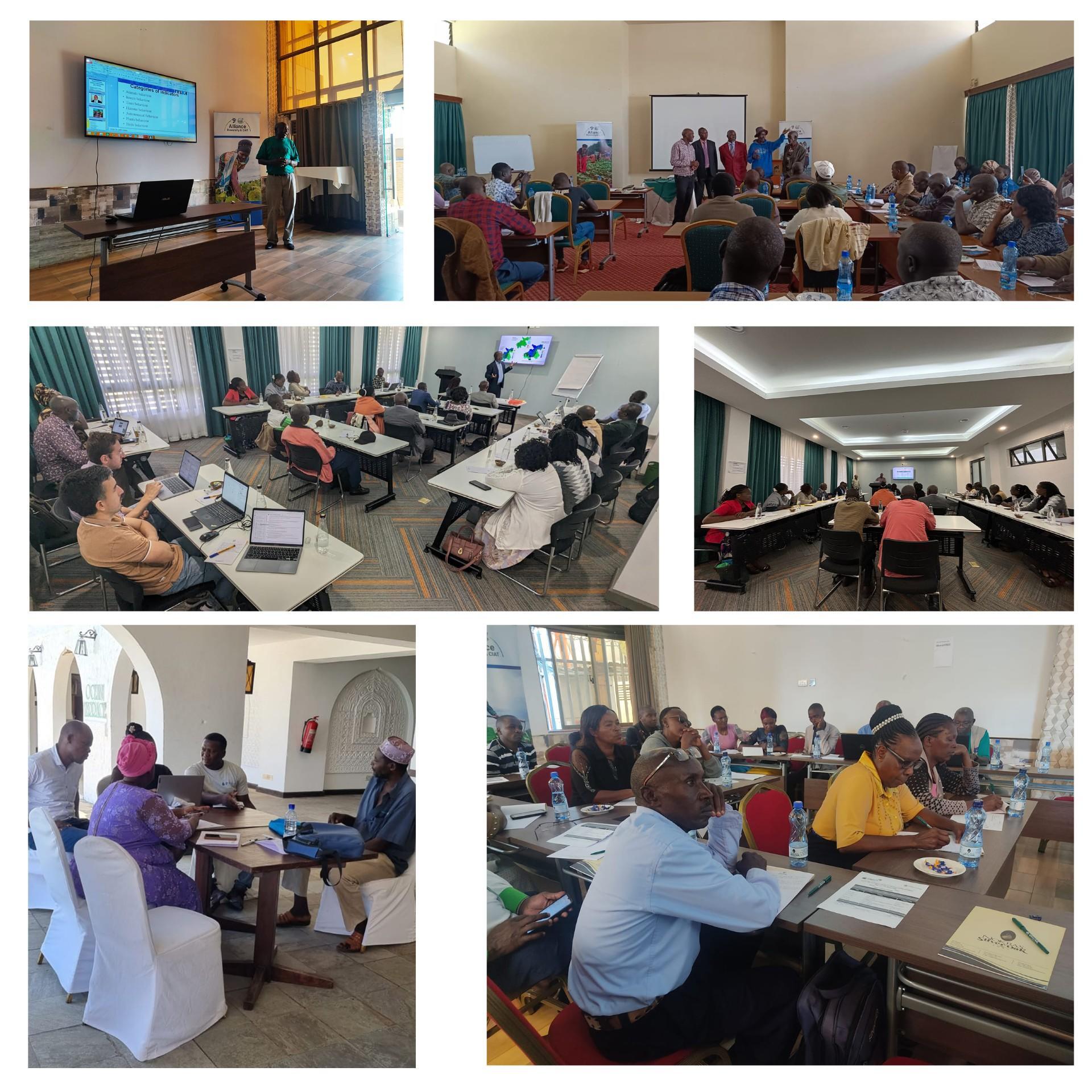
Participants engage in group discussion and presentations for sectoral advisories in various Counties during the PSP Workshops. Photo Credit: Alliance Bioversity International and CIAT
The journey of climate information begins with Regional Climate Outlook Forums (RCOFs), providing seasonal climate outlooks for the Greater Horn of Africa region. Active participation from the Kenya Meteorological Department in these forums helps distill regional forecasts into a national outlook, which is then downscaled to the county level. This detailed information is crucial for providing high-resolution forecasts reflecting Kenya's diverse terrain and climatic conditions.
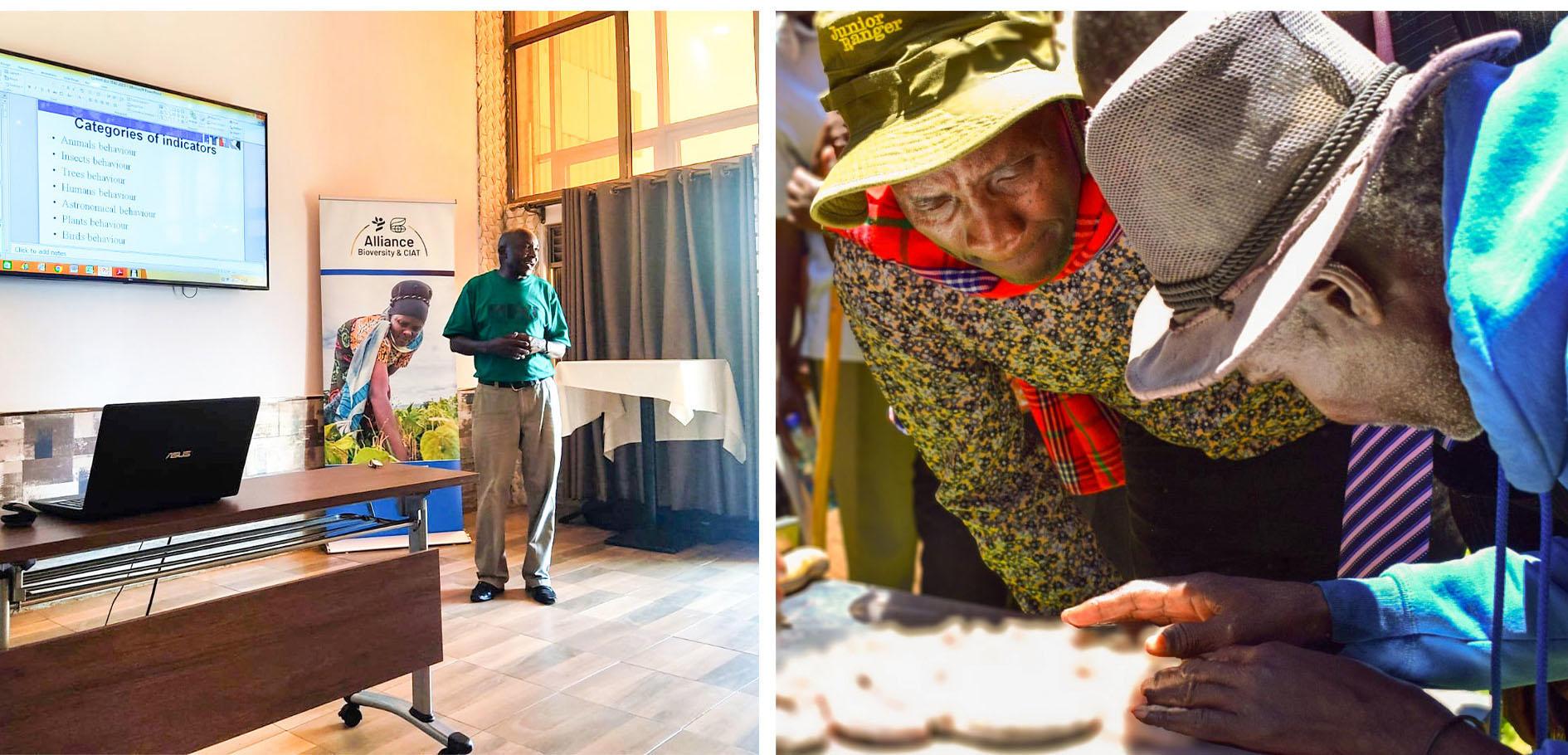
Capturing the essence of indigenous knowledge presentations: Image on the left shows discussion from Embu County on the different categories of indigenous indicators, while the right participants in Baringo are engaged in analyzing goat intestines to predict the season. Baringo Photo credit: ILRI/ Tam Kristen
During the week-long PSP workshops in nine counties, 282 participants - including 183 men and 99 women - engaged in interpreting downscaled forecasts and collaboratively crafting tailored advisories. These advisories covered critical areas such as agricultural practices and water management strategies, reflecting a consensus among meteorologists, sector experts, indigenous and traditional knowledge forecasters, and community representatives. This diverse assembly underscored the workshops' dedication to inclusivity and the pivotal role of gender-responsive climate services in sustainable development and climate resilience. Participation of diverse groups not only brought a wealth of perspectives to the table but also emphasized the significance of user-centric design and the integration of indigenous knowledge. By ensuring the active involvement of all participants, the workshops aimed to develop comprehensive, effective and inclusive solutions tailored to meet the specific needs of communities in their climate adaptation efforts.
Following the PSP workshops, effective dissemination of advisories through trusted local networks - including traditional barazas and other mediums - becomes crucial. Central to this effort is harnessing a blend of traditional and digital communication channels, including radio broadcasts, social media platforms, and dynamic interactions at barazas or local public gatherings. The face-to-face meetings in barazas, often led by experts such as the lead farmers or the extension officers, are not only forums for information exchange, but are also an integral component of community engagement and trust building. In recent years, the integration of WhatsApp groups into this mix has revolutionized the flow of information, creating digital networks that complement the physical spaces of community gatherings. This multi-channel dissemination strategy recognizes the importance of trusted local networks, where information is not only received but also validated and acted upon within the context of local knowledge and experiences, resulting in higher use, adoption, and uptake of climate-informed advisories, ultimately building more resilient and informed communities.
Acknowledgements
The Participatory Scenario Planning Workshops were conducted with support from Accelerating Impacts of CGIAR Climate Research for Africa (AICCRA), CGIAR Initiative on Diversification in East and Southern Africa, CGIAR Initiative on Climate Resilience, and CGIAR's Livestock and Climate Initiative Additionally, we extend gratitude to our key partners, including the Kenya Meteorological Department (KMD), ILRI, the county meteorology services and governments of Baringo, Embu, Kwale, Kilifi, Kitui, Machakos, Makueni, Taita Taveta, and Tharaka Nithi and all the participating organizations and most importantly the farmers. Their collaboration and dedication played a pivotal role in the realization of these workshops and their impact on local climate action.
The Team
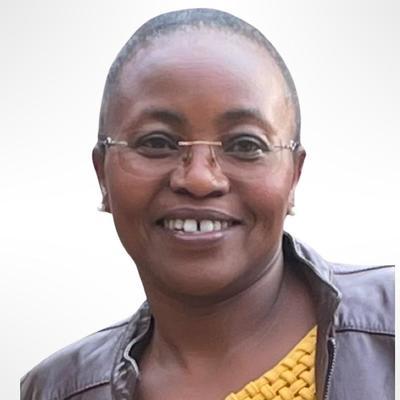
Anastasia Wahome
Research Team Leader
Carlos Eduardo Navarro Racines
Research Fellow

